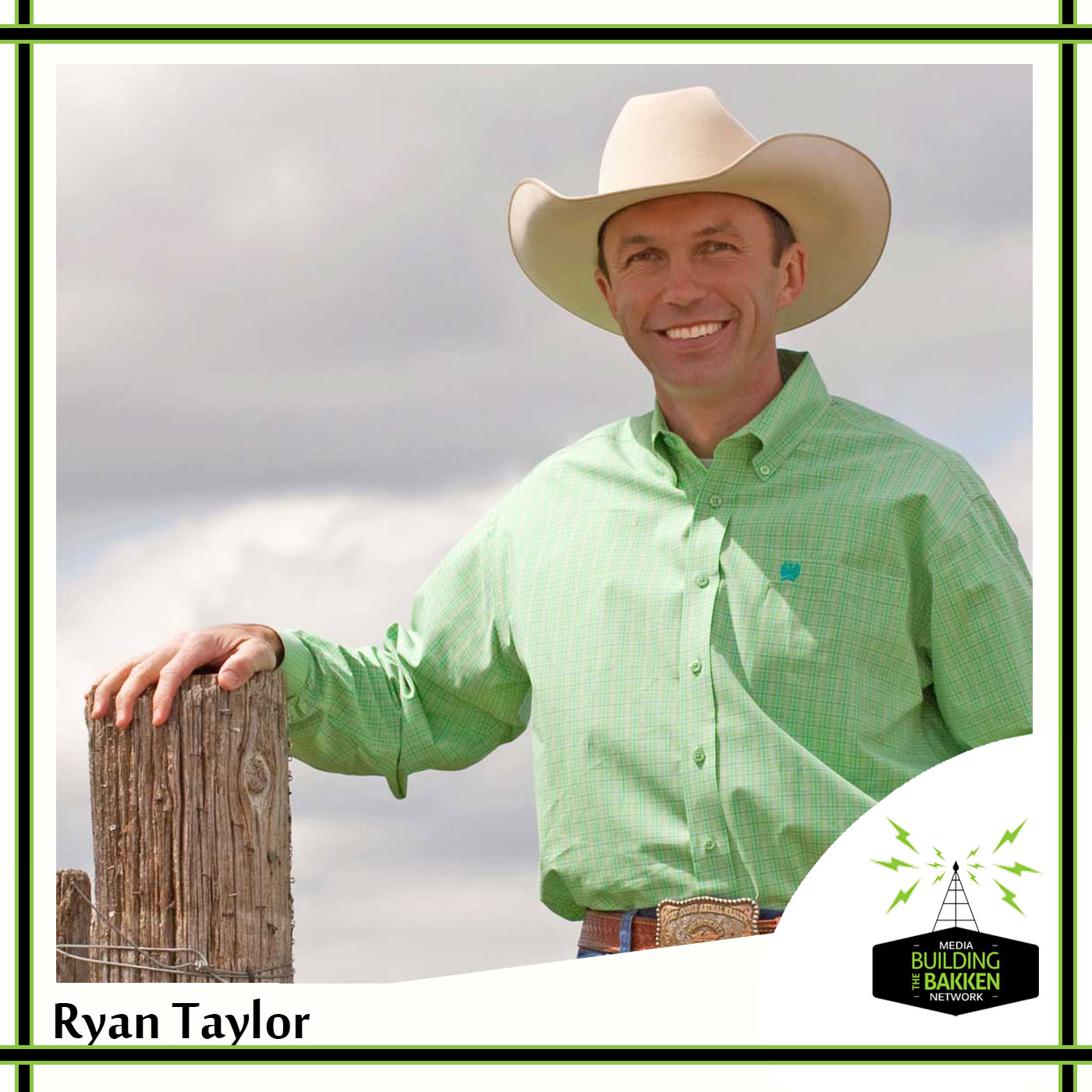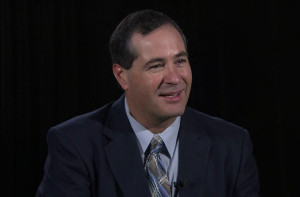

Interviews: Ryan Taylor
“As we look ahead, the 2015 legislative session will be critical and we’re eager to work with the state’s elected leaders in Bismarck,” Lee Tillman, president and CEO, Marathon Oil said at the Williston Basin Petroleum Conference. “We need the support of the legislature for critical infrastructure projects. State funding to provide Western counties with the hospitals, law enforcement and schools they need is vital.”
The North Dakota Agriculture Commissioner has become one of the more prominent positions in North Dakota. Already overseeing the number one industry, agriculture, the ND Ag Commissioner also sits on the Industrial Commission which oversees oil and gas. Reclamation, pipelines, the rail, rural North Dakota and other issues have become some of the most pertinent to the ND voters.
For our Energy Policy Special, candidates were provided three questions in advanced, limited to three minutes per question and were asked to refrain from using their candidate’s name in their response. All interviews were conducted in person.
In the 2014 North Dakota Election will feature two candidates on this year’s ballot. Doug Goehring and Ryan Taylor.
Candidate Doug Goehring
Candidate Ryan Taylor
North Dakota Agriculture Commissioner Questions
1. Tell me why the people of North Dakota should cast their North Dakota Agriculture Commissioner vote for you. (3 minutes)
Goehring: Well first of all I have a deep intimate understanding of agriculture as a farmer myself and farming with my son in southcentral North Dakota I think makes me the best candidate. I’ve probably produced almost every crop in the state of North Dakota, I’ve ran a livestock operation. I understand those impacts, challenges and opportunities. But the other thing I bring to the job is that whole drive that keeps a farmer and rancher going everyday which is you improvise, you adapt and you overcome.
I remember stepping into this job first thing, I came from the private sector and I saw some issues and I talked about, well, let’s develop some solutions for these things. And what we’ve done that others certainly try and have done is we develop real solutions for some real problems for some real results. I think looking at my record you can certainly see that we’ve developed a crop insurance product that can be used for identity preserve seed and or organic production. Took that to the AC21 committee at the national level. Also worked on the pollinator plan. A pollinator plan that is being used nationwide. It’s a model that can help enhance communications, develop best management practices for the ag community and for beekeepers.
Also we broadened the scope of our mediation program. No other program exists like this in the United States. The Port of Vancouver agreement, we found alternative methods to move grain on a backhaul system out of the state of North Dakota. Doesn’t solve all of our problems, but it’s a step in the right direction and its moving that ball a little further. We’ve increased exports in the state of North Dakota over 70 percent in the last four years.
We brought the, it was a collaborative effort between the congressional delegation, the governor’s office and my office to work with the corn growers in North Dakota, the soybean growers and the livestock industry to get a genotyping center in Fargo. I mean we won out. We got it. We are the best place in the United States to place that thing.
I think that really speaks volumes of our staff here at the department of the other agencies that we work with, the private sector, it’s about collaboration, its about public private partnerships, it’s about understanding all the other entities involved in the economy in North Dakota and the Upper Midwest and across the United States, connecting the dots and developing relationships.
Taylor: Jason I think it comes down to leadership for the number one industry in our state, which is agriculture. Leadership of ideas and we know affect the entire state. We’ve talked about rail transportation and getting that backlog cleared up, handling the issues with the landowners and surface owners as we try to merge both agriculture and energy in our state.
I think we need an Ag Commissioner that can bring people together and I believe I have a track record in that. And also someone who can not only communicate well about agriculture and the importance of it in our economy, but also to have a department that engenders trust and respect and open communication.
I think the Industrial Commission seat the Agriculture Commissioner has is extremely important to both agriculture and energy and again in that role we want someone who both understands agriculture and policy, but also has the ability to bring people together at a really critical time in our state’s history.
2. Ag/Energy Relationship: What are your views, platforms and/or thoughts on the relationship between agriculture and energy. (3 minutes)
Goehring: There’s a lot of opportunities and there are certainly some challenges. I know one of the things we struggle with constantly is looking at those fundamental and constitutional rights that our private property owners have. Whether you are a mineral owner of a surface owner. Trying to balance those thing out. My approach has always been about mitigating risk, minimizing impact, shrinking that footprint and maximizing opportunities. But it also means working with others to find out where we have some of our deepest greatest challenges.
How do we overcome those given what statutory authority we have? What’s within our mean to helping in those matters? It’s one of the reasons we went back to the mediation program to broaden the scope of it and look at surface damages to look at some ways to better develop better opportunities so that a land owner or a farmer or rancher’s voice is being heard or at least their concerns and issues are being brought to the front and put to the table.
The legislature still has responsibilities there that they continue to work with. We can only do so much. But these are areas we just continue to work on and strengthen that relationship but also understanding that agriculture is an energy intense industry. We need energy. We recognize that. We know that there are areas that we need to continue to address.
For example, there are growing tensions about putting pipelines in the ground. A lot of farmers in North Dakota and the Upper Midwest are looking at western North Dakota and saying why don’t you allow pipelines in the ground? Because if you would we could move more oil through pipelines and less on rail and that would elevate some of our concerns with rail concern issues that we are experiencing in North Dakota. Well that’s easy enough said, but there are some legitimate concerns and those are things are a working on with the farmers and ranchers in western North Dakota that we can provide some assurances when pipelines are put into the ground that they are being reclaimed properly.
We are going to continue to move along and address some of those issues. That really does bring us full circle to understanding the needs, issues, the desires and wants and still respect everyone’s fundamental and constitutional rights.
Taylor: We’ve talked about that throughout the campaign because they are our two most important and largest industries in the state with agriculture leading and energy very close behind. We’ve talked about issues that will bring landowners together with out energy developers because we know as we pull the oil out from underneath the ground we also need to take care of the issues on top of the ground so that we continue to harvest the crop and graze cattle across the top of the ground.
We find some areas of tension there, but I think with the right leadership and ability to communicate we can bring those two together so that we accomplish both. And we need to accomplish both. We’ve talked about reclamation and mediation, distance from a farmhouse to a well and also making sure we prevent salt water spills before they happen.
This is good for both industry and agriculture in my mind. I believe we need a little more of Art Link’s legacy in North Dakota. A leader that made sure we harvested the coal that was underneath the ground but still took care of the top soil. Made sure we could farm and ranch that land again. I want to be that kind of Agriculture Commissioner.
I think when Art said that “Let those who have fallen repopulate the land be able to say that our grandparents did their job well when the landscape is quiet again.” We need that again in North Dakota and that is what I intend to provide.
3. Industrial Commission: North Dakota has entered into new heights with oil and gas. What are your views, platforms and/or thoughts on the size of the current industrial commission. (3 minutes)
Goehring: Well it does present some problems once in a while when you have a three person board. But it’s been working for over a hundred years in the state of North Dakota. We started off with the Bank of North Dakota and state mill and elevator, we have the public finance authority, we have the housing finance agency, pipeline authority, transmission authority, we have the department of Mineral Resources, we oversee quite a bit. But the reality is we get it done.
I think the blend and the mix of who sits on the Industrial Commission is the right blended mix. We have the Governor who serves as the chairman. We have the Attorney General who understands the laws and brings that knowledge to the table. And we have the Agriculture Commissioner who understands land, who understand agriculture interests and with respect think of the state of North Dakota. Over 90% of the land in North Dakota is owned and operated by farmers and ranchers.
So almost everything that is going to happen out there, economically, is going to have an impact on those people. The Agriculture Commissioner should be there. I don’t know who else you would bring into the mix that would represent anyone else because these are the one who are responsible for some of the economic drivers in our state, but the are responsible for the use of the resource and the development of that resource. And since land is tied to every bit of it definitely the Agriculture Commissioner needs to have that seat there and that spot. I think we have a good mix, I think it works well.
I believe we’ve done a good job, we still have some challenges to meet and we will continue to meet those and overcome them. But our job for the most part is regulatory and enforcement in nature and the legislature develops those laws and gives the industrial commission the authority to do what it is we do.
Taylor: On the size of the Industrial Commission, since 1919 we’ve had three members, the governor, the attorney general and the agriculture commissioner. I think it lends a lot of credibility to the fact that North Dakotans think so much of agriculture that we placed the agriculture commissioner on the Industrial Commission, overseeing not only oil and gas, but Bank of North Dakota and the state mill and elevator, the housing finance agency, which, talk about a critical component of energy development in North Dakota is having housing.
I think the traditional make up of the commission has stood the test of time and those three members can get the work done. I do believe working with staff who would serve on oil and gas within the housing finance agency, we need to bolster those places that have increased their workload greatly. And the right leaders on the Industrial Commission would make sure they got the resources they need to get the job done. But I do think having myself at that table on the Industrial Commission, make sure that questions are asked that there is a little extra daylight in that room.
It’s General Patton who said when everyone is thinking the same, someone’s not thinking. And I do think we need to have balance on that commission because these are decisions that will affect us for generations to come and I think we can do that with the three members that are there with myself at the table.





Leave a Reply